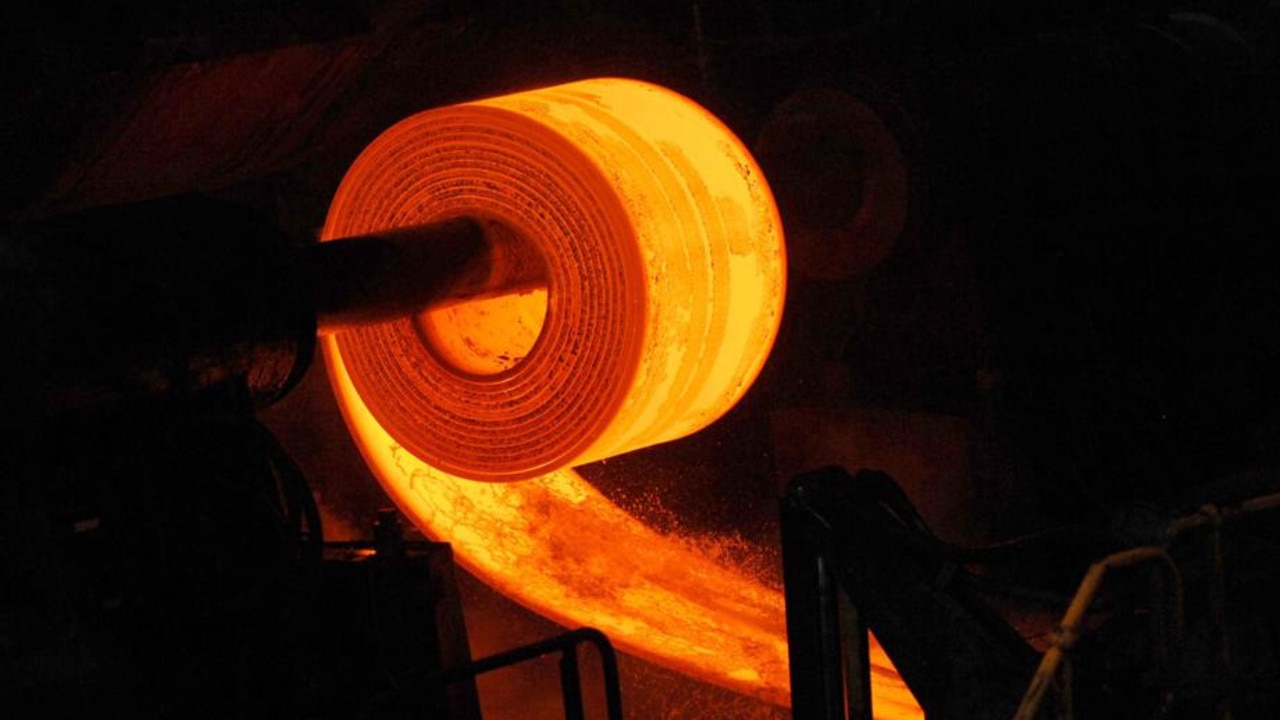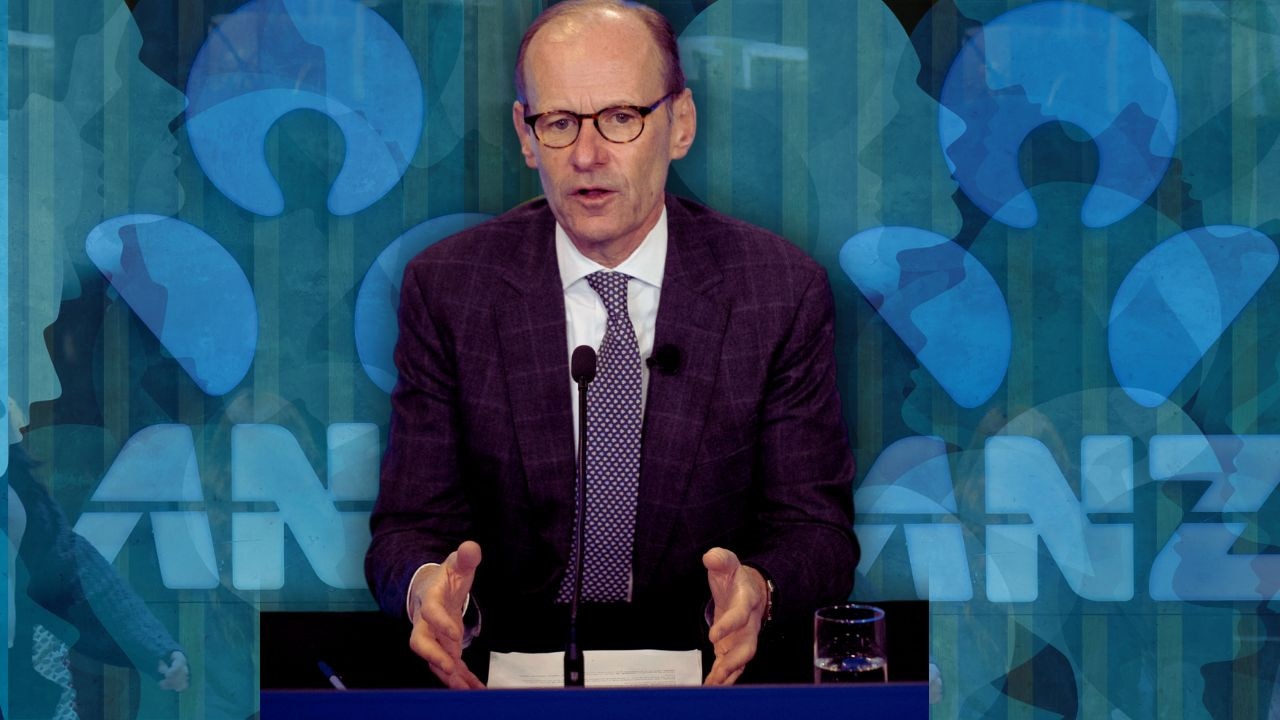Investment manager solves cryptocurrency puzzle: it’s an asset class

In the past 12 months, Celermajer has watched the cryptocurrency arena gaining traction with US hedge fund investors and institutions, players with big money behind them.
“A change in mindset is definitely under way,” says Celermajer of the US market. “Word on the street is that there is a lot of regret, as traditional banks and institutions didn’t think it would happen this quickly. In six to 12 months’ time, I think that will be how Australia is thinking.
“Today Australia is largely still not willing to even entertain the idea of trying to understand it. By late 2021, 2022 investors will be asking why they missed out on one of best opportunities of the year.”
“If you see Bitcoin on a bus, it’s time to buy!” scream the ads on Sydney buses. But it is not the retail punters that interest Celermajer. With business partner Igor Sidelska, he runs Magnet Capital, Australia’s first crypto asset management firm, which offers simple access for Australian wholesale investors. In December 2017, they launched an actively managed diversified crypto asset trust which has so far returned over 700 per cent after fees.
“It is a new asset class that you can then add to a portfolio like any other investment,” Celermajer says. Magnet Capital now manages $30m of crypto assets: a bitcoin-only trust was launched in November, and a third, ethereum-only trust is to be launched on Monday.
Since 2017, when it was priced below $US3000 ($3900), bitcoin has ridden an upwardly trending rollercoaster which in the past 12 months, has shot off into the stratosphere. Following Tesla’s $US1.5bn bitcoin buy just a week ago the price is more than $US47,500 a coin.
Sidelska became involved in bitcoin in 2014. “Egor was mining it when you could still do that out of your apartment,” says Celermajer, whose interest in bitcoin piqued two years later while going up through the ranks at Deloitte and looking for an opportunity in digital. “I looked at big data, robotics, autonomous vehicles and settled on blockchain.” As he began studying payment systems however, he says he quickly realised that business was not ready for blockchain and blockchain was not ready for business.
Bitcoin had a different proposition: the new store of value for investors.
Everyone, from regulators and central banks to fund managers and millennials, is grappling with the idea that bitcoin is something more than the emperor’s new clothes. Ironically, it is the tsunami of stimulus from central banks that is convincing top investors that bitcoin is a better store of value than cash. “No longer does anyone understand what the percentage of total cash out there is,” says Celermajer. “That’s because central banks have unparalleled power to increase the denominator.
“Last year the US printed 60 per cent more money than there was in circulation. In March, the president of the Federal Reserve Bank of Minneapolis came out saying ‘we have the power to print unlimited cash to help the economy’. That really spooks investors.”
Celermajer argues that unlike cash, the cap on production of a total 21 million bitcoins makes digital the standout store of value. “Digital is a harder form of currency than gold. There is a limited amount of bitcoin, you can’t just mine more of it or increase the amount in circulation. So there is absolute certainty with bitcoin.”
One certainty around bitcoin is the volatility. In 2017, after a Reddit-style retail run on bitcoin, the price plummeted. Celermajer acknowledges that everyone talks about bitcoin being volatile. “The trade-off is this: in cash you have a non-volatile depreciating value asset; with bitcoin you have volatile appreciating value asset.”
Where Celermajer has real concern however, is for the many retail enthusiasts jumping into the crypto craze. He is alarmed by what he calls irresponsible media offering “how to invest” guides on high-risk individual crypto currencies. He mentions just three: ripple, he says, is under investigation by the SEC for issuing unregistered securities; dogecoin, started as a joke, has been pumped by a tweeting Elon Musk but has had zero development for two years; and with EOS, the man behind the software powering the blockchain has recently quit.
Moreover, in contrast to bitcoin, most other crypto currencies are not limited in the amount that can be produced. They have other applications and purposes. For ethereum, the second-biggest crypto currency by market capitalisation, that purpose is to use the blockchain technology to build a secured decentralised platform for applications to launch on, such as financial contracts, insurance contracts and identity apps. But for many other open-ended crypto currency wannabes, their purpose is unclear and they do not store value.
“Remember The Wolf of Wall Street?” Celermajer asks, quoting the film’s famous line on investing. “Fugayzi, fugazi. It's a whazy. It’s a woozie. It’s fairy dust, it doesn’t exist! It’s never landed. It is no matter. It’s not on the elemental chart. It’s not f…..g real!”
These days, investing in bitcoin is much harder for the uninitiated. Mining bitcoin requires high-powered program chips called ASICs which devour energy. If you want to buy bitcoin, there is a wild west of exchanges, most of which offer little protection in an unregulated global market.
In 2019, the man running one of Canada’s largest bitcoin exchanges, QuadrigaCX, fleeced more than 76,000 clients of $US215m. “He held the key to customers’ crypto assets,” says Celermajer. “He ended up spending it and tried to leverage assets he had left to earn it back. As the pieces came undone and people started to work it out, he killed himself.”
“The head of ASX can’t just take your shares,” he continues, “and a share registry holds your shares. Regulation will come.”
There are also huge user experience issues with all crypto currencies. Bitcoin may have the ability to create secure storage, but the knowledge required is much higher than from the average Joe investor. “It’s a bit like saying you have the opportunity to jump in a rocket ship and push all the buttons. Most people use a third party.”
For these reasons, Celermajer can see a new exchange-traded fund market emerging, giving retail investors exposure to cryptocurrencies in a regulated environment, and listed on the stock exchange like gold ETFs.
For professional investors, Celermajer says Magnet Capital is an ASIC-licensed digital fund with global distribution partners. “It’s not a problem for us to buy $50m worth of bitcoin now.”
Magnet Capital’s distribution partners include the Winklevoss brothers who run Gemini, one of the largest bitcoin custodians in the US. “When they got paid out of Facebook, they put all of the money into bitcoin. Now they are billionaires. They are up there with the most regulated custodians with the largest insurance.”
The task for Celermajer while on the ground in Australia is to win over the fund managers. This month $25m was raised from Australian funds including Thorney and Wilson Asset Management for Iris Energy, a Canadian bitcoin miner. Iris Energy owns computing power supported by green energy and it is paid in bitcoin which the company converts to cash.
“Interestingly, investors in Australia are currently a lot more comfortable investing in equity in a bitcoin/crypto business at the minute to squeeze it in their mandates rather than expanding mandates to include the actual asset itself,” says Celermajer.
That will change, says the bitcoin backer, pointing to the crypto tickers running on CNBC in the US. America’s big investors are moving to back bitcoin against the Fed, he predicts. “Bitcoin’s purpose is a store of value. There is no utility in it — other than now you can buy a Tesla with it.”







On Saturday, in the midst of a bitcoin media blitz, Benjamin Celermajer emerged from his 14-day quarantine in Sydney for a trip home. The 30-year-old is based in Boston. He comes armed with a bitcoin pitch to Australian institutional investors but also a warning to amateur retail investors diving into fly-by-night cryptocurrencies that things could end badly for them.